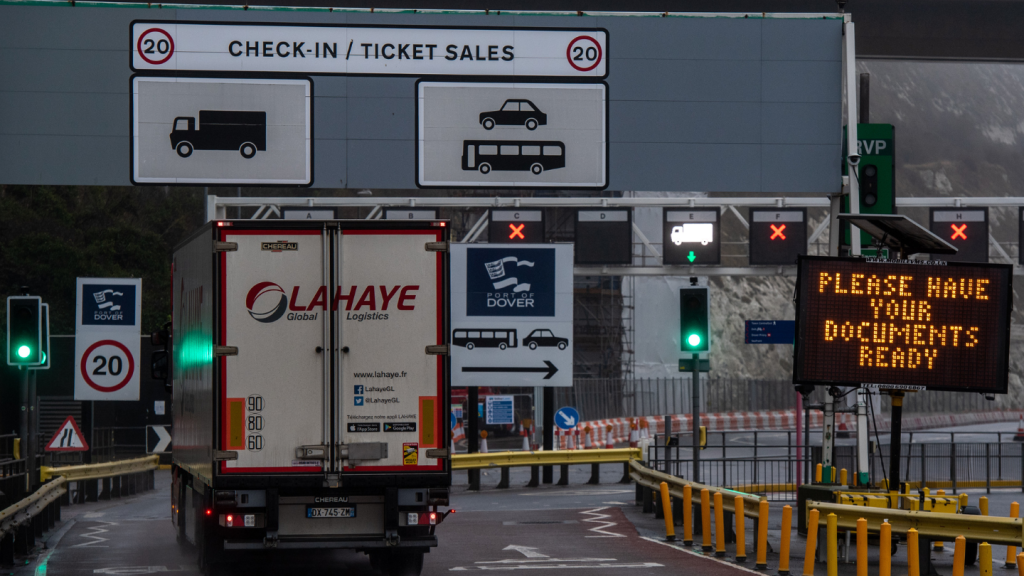The British Meat Producers Association (BMPA) has claimed the UK government played down the costs of new post-Brexit border controls on imports.
The UK’s Border Target Operating Model (BTOM), which has been in operation since 30 April, includes physical checks for “the highest risk goods” and document checks for “consignments of all risk levels”, according to the Department of Environment, Food and Rural Affairs (Defra).
The BMPA reported Defra claimed the new import requirements would cost “£330m ($420m) per annum overall, across all EU imports” and through all ports of entry, including extra administrative costs.
In a letter seen by Sky News to Labour MP Stella Creasy, Cabinet Minister Lucy Neville-Rolfe estimated that “around half” of the £330m would be on health certification, leaving £165m for port charges.
However, the trade group has said “the real financial burden on importers – and ultimately consumers – is significantly higher”.
The BMPA claimed that so-called Consumer User Charges for animal, plants and plant products entering or transiting through the UK are costing far more than the government initially conveyed.
The association said: “The government’s focus has been on the Common User Charge for medium-risk products like fresh meat, capped at £145 per truckload.
“But real-world costs paint a starkly different picture. The ‘cap’ is per consignment utilising one Common Health Entry Document (CHED) not per truckload. It’s conceivable a groupage load of say five consignments with five CHEDs, each with five product lines could be charged £725 for a single truckload.”
The group also said an additional levy from port authorities on top of the CHED is a “documentary and inspection charge for Dover and Eurotunnel consignments starts at £66 for loads up to 6 tonnes, plus £11 for each additional tonne”.
Peter Hardwick, trade policy advisor at the BMPA, said: “The government now admits that what was not clearly explained in its guidance is that this fee is applied to every medium and high-risk consignment of animal products, regardless of whether it undergoes physical checks. Only 2% of consignments are being physically checked, so the vast majority are being waved through without a second glance, but the charge is levied anyway.
“Let’s just look at imported products of animal origin alone. With at least 1,000 full truckloads of medium and high-risk products moving through Dover and Eurotunnel every day, the daily cost exceeds £240,000, translating to an annual burden of £88m, which is in no way aligned with the actual level of checks. And traffic through Dover and Eurotunnel only represents a third of all animal products coming into the country.”
Last month, insurance group Allianz estimated the new border controls could cost UK importers of EU food and drink up to £2bn.
Dairy, meat and fish would be the most affected by the inflationary hike, said Allianz.
“Remember, these are just the new port charges we’re describing. Not included here are the multiple other hidden costs being baked into imported food prices including the huge cost of all the new red tape and paperwork that’s now required to be done by vets and administrators before a lorry even leaves the factory,” Hardwick said.
“The British Meat Processors Association is calling on the government to urgently review these charges which, contrary to Defra’s claims of ‘minimal’ impact, are poised to significantly increase consumer prices.”
Just Food has contacted Defra for to comment on the BMPA's claims.









